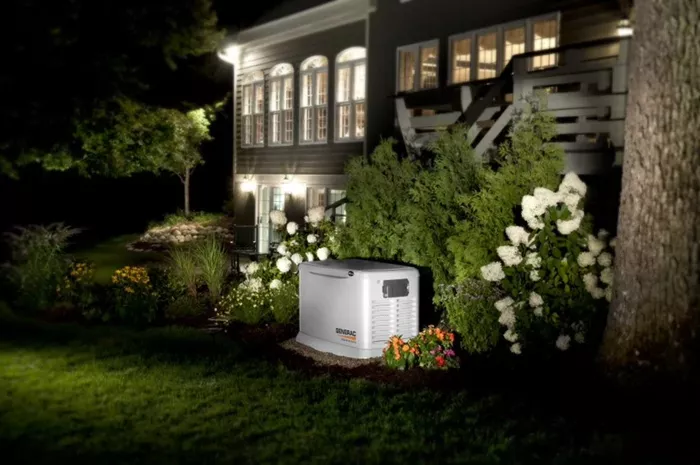When the power goes out, a reliable gas generator can keep your home running smoothly. Whether you need backup power for essential appliances or full-home coverage, choosing the right generator is crucial. In this guide, we’ll break down the best gas generators for home use, explain key electrical concepts, and help you make an informed decision.
How Gas Generators Work
Gas generators convert fuel (usually gasoline or propane) into electrical energy through an internal combustion engine. Here’s a simplified breakdown of the process:
Fuel Combustion : The engine burns gasoline or propane to create mechanical energy.
Alternator Operation : The engine spins an alternator, which generates electricity.
Voltage Regulation : The generator maintains a steady voltage to safely power your devices.
Power Output : Electricity is delivered through outlets, ready to run your appliances.
Understanding these basics helps you choose a generator that matches your needs.
Key Factors to Consider When Buying a Gas Generator
Power Output (Wattage)
Generators are rated in watts (W) or kilowatts (kW). To determine the right size:
Starting Watts : The extra power needed when motors (like refrigerators or AC units) start up.
Running Watts : The continuous power required to keep devices running.
Example Needs:
Small Home (3,000–5,000W) : Powers essentials like lights, fridge, and a few outlets.
Medium Home (7,000–10,000W) : Handles larger appliances, including a well pump or HVAC.
Large Home (12,000W+) : Full-home backup with central air conditioning.
Fuel Type and Efficiency
Gasoline : Common but less efficient; requires frequent refueling.
Propane : Cleaner burning and stores longer but may offer slightly less power.
Dual-Fuel : Runs on both gasoline and propane for flexibility.
Run Time and Fuel Tank Capacity
A larger fuel tank means longer run times. Look for:
- 8–12 hours at 50% load (good for overnight use).
- Eco-mode (reduces engine speed when demand is low, saving fuel).
Portability vs. Stationary Models
Portable Generators : Movable but require manual setup.
Standby Generators : Permanently installed, auto-start during outages (more expensive).
Noise Level
Generators range from 50 dB (quiet) to 80 dB (loud). Inverter generators are quieter, making them ideal for residential areas.
Top 5 Gas Generators for Home Use
Champion 7500-Watt Dual Fuel Generator
Power: 7,500W (gas) / 6,750W (propane)
Run Time: 8 hours at 50% load
Features: Electric start, dual fuel, CO detection
Best For: Reliable backup for mid-sized homes
Westinghouse WGen 9500DF
Power: 9,500W (gas) / 8,500W (propane)
Run Time: 12 hours at 50% load
Features: Remote start, durable steel frame
Best For: Heavy-duty power needs
Honda EU7000is Inverter Generator
Power: 7,000W
Run Time: Up to 18 hours (eco-mode)
Features: Super quiet (53 dB), clean power for electronics
Best For: Sensitive devices and noise-conscious users
Generac GP6500
Power: 6,500W
Run Time: 10 hours at 50% load
Features: Easy-to-use control panel, durable design
Best For: Budget-friendly reliable power
Briggs & Stratton 8000W Standby Generator
Power: 8,000W
Run Time: Automatic operation (LP/Natural Gas)
Features: 24/7 automatic backup, Wi-Fi monitoring
Best For: Whole-house protection
Safety Tips for Using Gas Generators
Proper Ventilation : Never run a generator indoors (risk of carbon monoxide poisoning).
Transfer Switch Installation : Required for safely connecting to home wiring.
Regular Maintenance : Change oil, check spark plugs, and store fuel properly.
Load Management : Avoid overloading to prevent damage.
Conclusion
Choosing the best gas generator for your home depends on power needs, fuel type, and budget. Portable generators offer flexibility, while standby models provide seamless backup. Always prioritize safety and proper sizing to ensure reliable power during outages.
By understanding how generators work and comparing top models, you can make a smart investment in home backup power. Whether for emergencies or off-grid living, the right generator keeps your household running smoothly.

